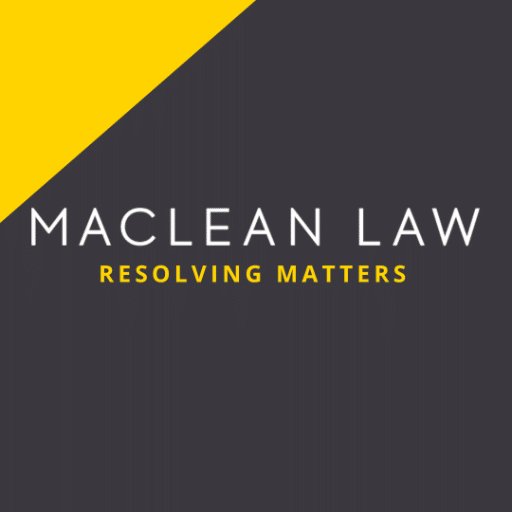
Vancouver Calgary Marriage Agreement Lawyers help parties draft legally enforceable marriage agreements also known as pre-nuptial agreements that provide the best chance of withstanding a court review, many years or even decades later. In today’s blog, Jonathan Wai, senior associate of Maclean Law’s Vancouver Calgary Marriage Agreement Lawyers explains why marriage agreements also known as prenuptial agreements benefit from independent legal advice, consideration of possible future events, and ongoing legal guidance.
Vancouver Calgary Marriage Agreement Lawyers 1-877-602-9900
Jonathan Wai can be reached at our downtown Vancouver office at 604-602-9000, or toll free at 1-877-602-9900. Our top* Vancouver Calgary Marriage Agreement Lawyers have 6 offices across BC located in Surrey, Vancouver, Richmond, Kelowna and Fort St John as well as a Calgary Family lawyers office. MacLean family law is a repeat winner of Vancouver ‘s Top* family law firm.
“I have a prenuptial agreement. Is it legally valid?”
Generally, a marriage agreement also known as a prenuptial agreement must be in writing, signed by both parties, and in case of property division and support, witnessed by at least one person.
The recent decision of Guivian v Goldarre, 2017 BCSC 1786 (“Guivian v. Goldarre”) is a good example of when a marriage agreement done without legal advice was found to be valid, but was still be subject to court review. In that case, the court found that:
[13] These agreements were obviously homemade. They were negotiated without benefit of independent legal advice or of any advice as to what would be fair in the circumstances, or what considerations would go into what would be fair …
[33] I am satisfied that the court must deal with the September 1998 agreement, and that therefore the regime which must be applied is the Family Relations Act, R.S.B.C. c. 121 as amended …
[35] It must be recognized that the 1998 agreement is a marriage agreement. As such it is presumed that the division made under it is valid unless the party challenging it (here, the claimant) is able to establish that it is “unfair” having regard to the factors set out in section 65(1) of the Family Relations Act. Section 65 only mandates fairness, not equality.
“If my prenuptial agreement is legally valid, will the court change it? Why or Why not?”
The court may review the agreement for fairness, and if found to be unfair, the court can change the division of property in the agreement. In Guivian v. Goldarre, the agreement, which provided for 2/3 of the assets to go to one party, was found to be a valid marriage agreement, but that was not the end of the inquiry. The court looked at the following factors:
[36] The leading case on reapportionment under section 65(1) is found in Kelly v. Kelly, 2014 BCSC 2033 (CanLII) quoting Hartshorne v. Hartshorne, 2004 SCC 22 (CanLII):
… The court must determine whether the marriage agreement is substantively fair when the application for reapportionment is made. The essence of this inquiry is whether the circumstances of the parties at the time of separation were within the reasonable contemplation of the parties at the time the agreement was formed, and, if so, whether at that time the parties made adequate arrangements in response to these anticipated circumstances …
[37] At para. 44 Bastarache wrote:
… Thus, central to any analysis under s. 65(1) of the FRA is consideration of how accurately the parties predicted, at the time of contract formation, their actual circumstances at the time of distribution, whether they truly considered the impact of their decision and whether they adjusted their agreement during the marriage to meet the demands of a situation different from the one expected, either because the circumstances were different or simply because implications were inadequately addressed or proved to be unrealistic.
In other words, as the court later says, the process is a two-step inquiry:
[40] A two-step process is mandated by Hartshorne at para. 41. The first requires a court to look at the circumstances to determine if, at the time of execution, one party took advantage of the other party’s vulnerability or if the substance of the agreements, “at formation failed to comply substantially with the general objectives of the Divorce Act.” …
[42] The second part of the two-step process deals with the parties personal and financial circumstances, and “whether they truly considered the impact of their decision and whether they adjusted their agreement during the marriage to meet the demands of a situation different from the one expected.”
In this case, the court considered the dollar value of the 2/3 to 1/3 split of the assets at the time of the 1998 agreement, compared with the dollar value of the properties at the time of separation, as they had significantly increased in value through market forces at that time. The court also considered that the parties appeared to have proceeded on an equal basis since the agreement, which was different than the 2/3 to 1/3 split in the agreement:
[41] At the time the agreement was made, bearing in mind that the agreement was not a separation agreement but was meant to create peace, it was fair. Ms. Goldarre was comforted by the arrangement. It left her with $133,200 against Mr. Guivian’s $66,800 or so. This arrangement was rendered paltry seven years later when the property sold for $1.36 million. The parties did not divide their assets as the agreement provided. They bought a property on Keith Road, put $100,000 into it, sold it for $2.5 million and purchased another property at 836 Esquimalt for $1,880,000, again without any reckoning between them. They simply proceeded on an equal basis. One thing to note is that the $225,000 they gave to the Iranian charity exceeds the total amount available for distribution on September 1998.
Vancouver Calgary Marriage Agreement Lawyers

As well, the court found that:
[43] … there is nothing but the increase in the assets that is of interest. The agreement was not “unimpeachably motivated”. As in Dowell Estate v. Dowell, 2009 BCCA 175 (CanLII) the trial judge held that “the parties did not contemplate the evolution of ownership of assets over 20 or 30 years and that their agreement would not be reflective of their considerations.”
[44] That is the case here. The gains were so spectacular that the parties could not have anticipated finding themselves in the present circumstances. Better legal advice might have saved them but that is far from certain. The fact remains, however that both parties contributed to the purchases that the parties made subsequently. The difference between the spouses’ interests, based on 1998 value is negligible in terms of what came later. Any attempt to trace the funds would be artificial and would have to contend with numerous issues that have not, and probably cannot be addressed. One example is that Mr. Guivian worked four years longer than Ms. Goldarre. How that could be accounted for is not at all clear, assuming one could get to the bottom of it in any event.
As such, the court declined to follow the 2/3 to 1/3 division of the 1998 agreement, and instead ordered a 50/50 division:
[45] I am satisfied, essentially on the sole basis that the events of the nearly 20 years since the making of the separation agreement were so out of the contemplation of the parties that the 1998 agreement cannot stand.
[46] The issue then becomes whether the division should be 50% or should be decided on some other basis. To do so would be to make a judgment on no other basis than to take a guess at what is “fair” based what the court has heard. I decline to do that. The court heard a tiny fraction of what it could have heard. It might have been no closer if it heard a fuller case.
[47] The distribution set out in the 1998 agreement is, judged by the standards that must be applied today, unfair. I see no unfairness, that being so, in making the distribution 50-50 in accordance with s. 65(1).
Vancouver Calgary Marriage Agreement Lawyers
In summary, the importance of considering future events cannot be overstated, as well as the importance of adhering to the intent of your marriage agreement during the marriage. Important differences exist between marriage agreements made in BC and in Calgary such that Alberta agreements on matrimonial property tend to be favour upholding agreements more than in BC in cases where full disclosure may not have occurred at the time formation.
What may appear fair at the time of the agreement might not be fair many years down the road. While it is impossible to plan for every scenario, as the court stated, independent legal advice can be a significant benefit in drafting a marriage agreement that is valid and fair, and a marriage agreement that is likely to stand the test of time.
As well, acting in a manner inconsistent with the agreement over time can render the agreement more likely to be changed by the court. Legal advice for important life events such as purchasing real property, having a child, or starting or reorganizing a corporation can also guide you as to how to conduct your affairs, consistent with your existing agreement and relying upon it, making it more likely to withstand a court challenge. For advice on separation agreements click here.
If you wish to get a marriage agreement or prenuptial agreement drafted, or wish advice on your existing marriage agreement or prenuptial agreement, our Vancouver Marriage Agreement Lawyers at the Vancouver Office and all offices of MacLean Law are here to help you.








